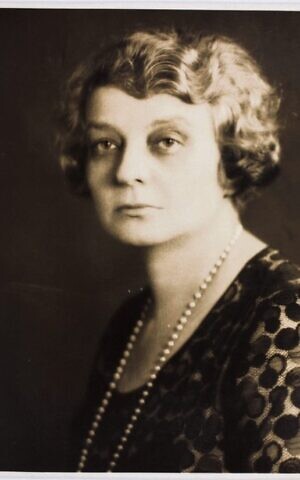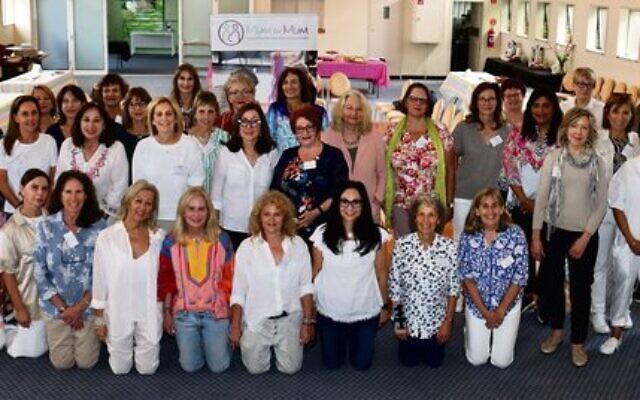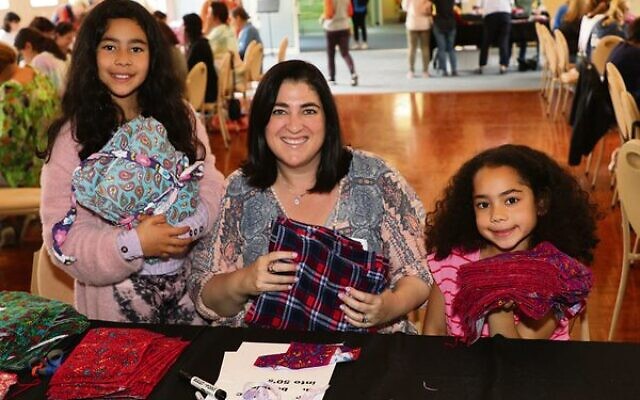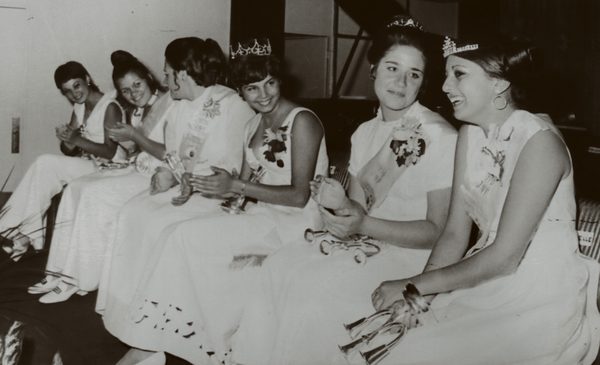“We have been wandering for 40 years in this city, from one place to another. Now that we shall have a home of our own worthy of our aims, I hope its doors will always be open, day and night, to welcome the stranger and those that need us, where our members can carry out our work of service with greater efficiency, and where peace and loving-kindness should reign within its walls.”
Dr Fanny Reading, founder of the National Council of Jewish Women of Australia (NCJWA), spoke those words at the opening of Sydney’s Queen Street Hall in 1963. She went on to leave an incredible legacy, as this year the NCJWA NSW celebrates 100 years of Australian Jewish women working together.
On July 8, 1923, the NCJWA was founded as a unique, not-for-profit organisation that represents Jewish women around Australia. The aim of the organisation is to promote social justice, welfare, and the advancement of women in the Jewish and general communities.
At the first Jewish Women’s Conference in 1929, Reading said, “And the best of all impressions to take back from this conference to your states, your cities and your homes, is that the Council of Jewish Women stand above all things, for the law of loving-kindness.”
Current national president of NCJWA Melinda Jones said she is honoured to serve in the role and follow in the footsteps of previous presidents of the organisation.
“I stand on the shoulders of courageous, politically astute women such as Dr Fanny Reading, Dr Ray Ginsberg, Geula Solomon and Di Hirsh,” Jones told The AJN.
“In 1923 … it was clear that women needed to organise. Our community, as now, had strong intelligent women who wanted to ensure that the concerns of Jewish women were discussed, that Jewish women could organise to support the changes that were needed in the world. Both in our own community, and the communities which had been left behind.
“Over the century NCJWA Australia has supported Australian Jews through the horrors of the Great Depression, fought the restricted migration during that time up until the outbreak of war, supported our soldiers and did the work of the men who were not here during the war, always aware that we didn’t know yet exactly what was happening to the family left behind. NCJWA was there when the first survivors arrived on our shores, and when the state of Israel was declared.”
Reading was born Fanny Rubinovich in Russia in 1884. Her family emigrated to Australia, at first settling in Ballarat, Victoria, then relocating to Melbourne in the early 1900s. In 1918 the family anglicised their surname to Reading.

Reading studied music at Melbourne University. She graduated in 1914, later returning to university to study for a medical degree from 1916 to 1921.
The economic woes caused, in no small part, by the Industrial Revolution, led to millions of Jews seeking to leave the Russian Empire. Many of these were women and children, and Australia was a sought-after destinations. Poverty-stricken, with no education and no means of support, many of these women found themselves working in the prostitution trade. Internationally, NCJW recognised this and began assisting young Jewish women immigrants as they disembarked after their long journeys.
Founder of National Council of Jewish Women in America, Hannah Greenebaum Solomon, was a role model for Reading, and Henrietta Szold – the American-born Jewish Zionist leader and founder of Hadassah, the Women’s Zionist Organisation of America – was also inspirational in Reading’s steadfast commitment to supporting Israel.
Reading was impressed, as she said in her own words, “by great women imbued with the ideals of service”, and her intent was, through NCJWA, to inspire Australian Jewish women to support Israel, the Jewish community and the general community. She believed in empowering and improving the lives of women and children.
Reading’s medical practice was in the bohemian area of Sydney’s Kings Cross, known for its illegal trade of alcohol and brothels. She cared for prostitutes, street kids and victims of domestic violence.
“No one wants to know that there is so much heartbreak, suffering and … degradation in the Cross. I must live and work here,” she said.
Reading was born into a “man’s world”, yet she strongly believed in social change and became a powerful role model to Jewish women, showing they could make a difference. At a time when Zionism was not universally accepted in the Jewish community, Reading included the Zionist ideal in council’s aims from its inception and was a delegate at the XIV Zionist Congress in Vienna in 1925. She lobbied at the highest government level before, during and after World War II, to open doors for Jewish refugees to enter Australia.
She also lobbied the British government that “the gates of Palestine be opened for unrestricted Jewish immigration as an urgent necessity for the saving of Jewish lives” (NCJW Conference Resolution, 1943).
Reading was named as a “Woman of Distinction” by Justice Herron of the Supreme Court for the principled stand she took on behalf of the Australian Jewish community in a libel action against Smith’s Weekly. This publication accused Australian Jewry of sending funds to support action against the British in Palestine.
Among many fundraising efforts during WWI, NCJWA raised over £300,000 for Commonwealth war loans and raised £18,000 for the Australian Comforts Fund by the Sydney Kiosk and the Midway Arcade Shop in Melbourne. NCJWA also made a quarter-of-a-million garments for servicemen and organised first aid and air raid classes in every NCJWA section.
After the war NCJWA raised large sums for local hospitals, soldiers’ dependents’ homes, children’s homes, and other local charities such as Montefiore Home and the Hebrew Ladies’ Maternity Society. Members also gave of their own services in hospital canteens.

NCJWA contributed large sums to Polish, Jewish and German refugees’ associations, Rescue the Children Fund, and the United Jewish Overseas Relief Appeals. The organisation also assisted the United Nations Relief and Rehabilitation Administration by contributing thousands of garments.
In 1923 Jewish women did not have a voice, but today the women of NCJWA NSW support a number of projects, including Mum For Mum, Cuddle Bundles, Days For Girls, the Jewish Women’s Breast Cancer Network, Rebbetzin Jana Gottshall Memorial Library Book Club, and Empower Her – NCJWA NSW’s young adult division.
And NCJWA Vic, officially founded in 1927, also supports a number of programs, including Caring Mums, the Jam Project and the Veterans Project. The organisation’s Make Space For Her campaign also champions gender equality within the Jewish community.
Through its affiliation to the International Council of Jewish Women (ICJW), NCJWA is represented globally. ICJW has consultative status at the United Nations as a non-governmental organisation (NGO) with the Economic and Social Council (ECOSOC), and maintains permanent delegations in New York, Geneva, Vienna and Paris. ICJW is also represented at the Council of Europe, the European Women’s Lobby, the International Council of Women, the World Jewish Congress, and many other international and regional organisations.
As one of the many organisations that contribute to the bedrock of the Australian Jewish community, NCJWA offers the unique opportunity to support Jewish issues, but also to volunteer and advocate on wider issues, that, to quote Reading, “concern common humanity” and to do so as proud Jewish women.

“Our organisation has been uniquely placed to provide information, assistance and guidance to many women, both Jewish and not,” Jones said.
“We have worked hard to end the agunah problem which sees so many women abused by ex-husbands who use our religion to hurt. We have worked together with women from other faith groups on issues that are important to all women. We have directly assisted women in Israel after trauma and rape.
“I am proud and excited to lead this organisation as we look forward to another century in which women work together to make the world a better place. We’ll be holding celebrations in November and hope to bring together the women who have been part of this organisation for a time, and also the newer generation who will see it through the next period.”


comments